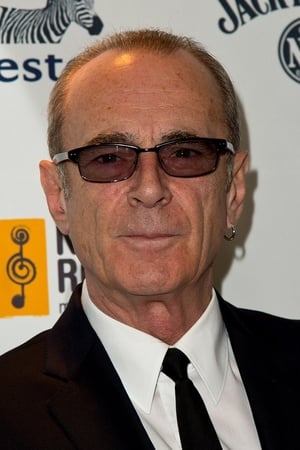Francis Rossi (b. 1949)
Alias:
Francis Dominic Nicholas Michael Rossi
Status Quo
Birthplace:
Forest Hill, London, England, UK
Born:
May 29, 1949
Francis Dominic Nicholas Michael Rossi, OBE (born 29 May 1949) is an English musician. He is the co-founder, lead singer, lead guitarist and the sole continuous member of the rock band Status Quo. Rossi was born on 29 May 1949 in Forest Hill, London. His father's side of the family were Italian ice cream merchants and had an ice cream business in South London, and his mother was a Northern Irish Roman Catholic from Liverpool. He grew up in a household with his parents, grandmother, and "lots of aunts and uncles" and was given a Roman Catholic upbringing, having been named after Saint Francis of Assisi. He spent his summer holidays as a child with an aunt in Waterloo, Merseyside. He attended Our Lady and St Philip Neri Roman Catholic Primary School in Sydenham, and then Sedgehill Comprehensive School, from which he was expelled on his last day for having allowed his classmates to deface his school uniform. His desire to become a musician began after seeing The Everly Brothers live on television at a young age, after which he asked his parents to buy him a guitar for Christmas. In 1962, while attending Sedgehill Comprehensive School, Rossi became close friends with future Status Quo bassist Alan Lancaster while playing trumpet in the school orchestra. The two, along with other classmates Alan Key (drums) and Jess Jaworski (keyboards), formed a band called the Scorpions, who played their first gig at the Samuel Jones Sports Club in Dulwich. Key was later replaced by Air Cadets drummer and future Quo member John Coghlan, and the band was renamed the Spectres. The Spectres wrote their own material and played live shows; the line-up soon included Redhill-based keyboard player Roy Lynes, whom they had seen performing with a band called the Echoes who were also based in Redhill. In 1965, the Spectres played at a Butlins holiday camp in Minehead. There Rossi met his future long-time Status Quo partner Rick Parfitt, who was playing as part of another band, the Highlights. The two became close friends and agreed to continue working together. In 1966, the Spectres signed a five-year deal with Piccadilly Records, releasing three singles that failed to chart. The group again changed their name, this time to Traffic Jam, after embracing psychedelia. In 1967, Traffic Jam changed its name to The Status Quo, but eventually dropped the definite article. Shortly afterward Parfitt joined the band, completing the original line-up, and beginning an almost 50-year partnership with Rossi until Parfitt's death in 2016. Rossi had written a song called "Pictures of Matchstick Men", which hit the charts in both the UK and the US in 1968, launching their hit-making career. After some years of minor success, the band reached #5 in the album charts in 1972 with Piledriver. Released on Vertigo Records, it included "Paper Plane", a song penned by Rossi and Bob Young, which was released as a single. Status Quo continued to enjoy major success in the UK, Europe, Japan, Australia and New Zealand through the 1970s and 1980s. They were the opening act of 1985's Live Aid, and Rossi wrote and co-wrote some of their biggest hits, including "Caroline" and the band's only number one single, "Down Down". ... Source: Article "Francis Rossi" from Wikipedia in English, licensed under CC-BY-SA 3.0.





